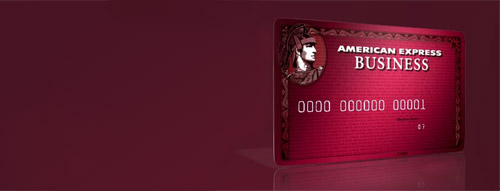
There was a lot of speculation on how well the Mastercard IPO would do in 2006. The stock’s done well. Very well. And investors are waiting anxiously for the coming Visa IPO which has got fortune-maker written all over it.
These public offerings are raising the stakes in the credit card arena significantly and the offerings we’ll see from the various credit card issuers as they duke it out is going to get a lot more competitive.
Understanding Trade Terms in General
Most businesses have credit accounts with other businesses (their suppliers). When it come to trade terms on business-to-business transactions, the most common set of terms is net 30 days; you buy something and you have 30 days from the invoice date to pay for it.
But there’s another common term that’s used for B2B credit accounts called 2% 10 days. What this means is that if you pay within 10 days of the invoice date, you get a 2% rebate on the invoice amount. 2 percent 10 days is a set of terms that’s usually forced on small companies by large retailers and distributors because it’s a good deal for these cash-rich buyers.
A Closer Look at 2% 10 Days
Large retailers (and cash-and-carry distributors) have a steady inflow of cash. So what do they do with it? Most businesses keep their liquid cash in the bank. At say, 4% annual interest, it’s not a great investment. But it’s liquid and available.
If you look at what that cash would earn by sitting in the bank for 20 days, it’s (4% / 365 * 20) = 0.22%. So in 20 days you could make $0.22 on $100. If that’s money for your Ferrari fund, it’s gonna take a while.
But if you’ve got a 2%-10 deal with your suppliers then effectively you’re paying them 20 days sooner than net 30 in exchange for 2% off the invoice amount. Which equals $2.00 on $100 or almost 10 times what you can get by leaving that money in the bank and paying your bills in 30 days. Sa-weet!
Generally it’s better to defer your payables longer. But if you’ve got a steady inflow of cash, then you might as well leverage it to earn more money. Small suppliers don’t have much choice but to accept these terms, and if they’re cash starved it can be helpful (although pricey).
The American Express Plum Card
So here’s what American Express is offering … the Plum Card gives you a 2% rebate if you have a monthly balance over $5000 and you pay within 10 days. Effectively, they’re putting these great trade terms into the hands of small businesses to use their card.
If your monthly balance is less than $5000, then you get a rebate of 1% for paying early. And if you need to defer your payables, you can pay 10% of your balance and defer the rest for 2 months interest free.
It’s a very flexible card and a pretty good deal for small to medium businesses or online businesses that use a credit card for a significant amount of purchasing.
So … Visa … Mastercard … care to up the ante guys?

We recently got the Plum Card and we like it a lot, the 2% adds up quickly and for a small business rewards should be upwards of $5,000+ a year, which is a nice chunk of change for small businesses.
Hey Asif,
It’s nice to be able to leverage trade terms for all those smaller purchases. I think it’s one of, if not the best credit card for businesses – large and small.
best card for small businesses… Mastercard and Visa still do not have a competative credit card since the Plum card came out…
Hi Sheila,
I agree, the Amex Plum Card is the best card out there, bar none. It operates the way business operates. They have an edge over Visa and Mastercard because they actually loan the money you charge, so it’s easy for them to put a deal like this together.
Visa and Mastercard only process transactions. It’s the card issuing banks that actually loan the money you charge on their cards. That makes it more difficult to put a deal like this together.
That said, I wouldn’t doubt it if we see a great trade-terms card from them in the future. And my guess would be that it would come from Mastercard first as they try to capture more market share in the wake of the recent Visa IPO.